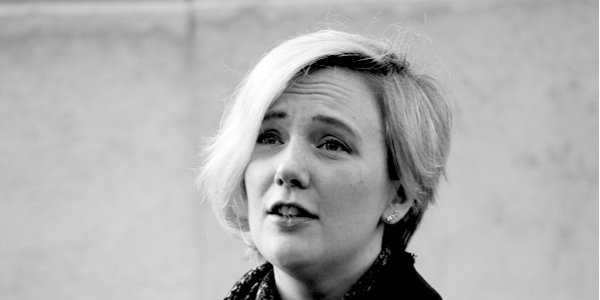SOMETIMES it’s hard to believe that Stella Creasy MP is not a caricature. A kind of Labour version of the late Rik Mayall’s Alan B’Stard or Viz comic’s perma-whining uber feminist Millie Tant. Previously infamous for demanding that she be allowed to bring her baby into the House of Commons, she recently tweeted (moaned) that the ‘Motherhood Penalty’ didn’t allow her to attend Christmas party events.
It would be bad enough if our Stel had merely been pining for her single days and not being able to go out on the lash, which would at least be relatable and have a certain ladette charm to it, but bizarrely she regarded this as the kind of missed networking opportunity that holds women back.
The disconnect between the luxury beliefs of this highly privileged, spoilt, self-obsessed Westminster denizen and the needs of ordinary women could not be starker. Predictably, there was much mirth and incredulity at her comments, although not all her correspondents saw the funny side, pointing out that Creasy was damn lucky to have had two healthy children in her forties and that many women would love to be in her position.
And it’s really not funny: leaving aside the effect on women’s rights of the absurd trans issue, which is at least now getting some level of media attention, the desires and needs of most women have been largely sidelined in society. While elite feminists such as Creasy obsess about non-issues such as the Gender Party Gap, women are much more likely to be single and childless, or having fewer children than they would like to. More and more of us are painfully aware of this baleful trend at Christmas, which has become a bitter-sweet time for many families. Those who are blessed with children invite round single and lonely siblings who would have desperately liked them, but do not. They try to join in the fun and watch the excitement of the children opening their presents, but what is a magical time of year for some is one of excruciating sadness for them.
You would think with women being a majority of the population that a functioning democracy with more women MPs than ever before would address this issue, but then Britain, like much of the Western world, is not a functioning democracy at all. For a start, most MPs of both sexes come from an elite political class wholly divorced from the vast majority, as Creasy’s infantile behaviour and priorities so ably demonstrate. There are also the innate distortions that the purely Representative system introduces. Firstly, not all votes matter equally: a floating voter who is highly likely to vote is worth twice a core voter because their vote, if not cast for you, is likely to go towards the tally of your main challenger. Women generally are more likely to be floating voters than men, and middle-class women especially are more likely to vote. Ergo, the policy agenda is highly skewed towards the needs of a minority of career-minded women. Secondly, declining demography is a slow-burn problem: decades after the fact, only now is Europe waking up to its catastrophic effects. For career politicians fixated on short-term horizons, addressing this issue properly has no upsides and lots of downsides: pro-natal policies may mean the economy takes a short term hit as women drop out of the workforce to concentrate more on family life; it increases pressure for public services such as schools and hospitals. The positive effects will be felt only decades after you have left office – useless for your career. Instead, politicians concentrate on mass immigration as a short-term stopgap. Moreover, because politicians like to adopt the polite fiction that all cultures are of equal value, a good deal of that immigration comes from cultures with antediluvian attitudes towards women and girls, as the horrors of the largely Muslim grooming gangs have exhibited.
If the situation is bad for women, it is even worse for white working-class men, arguably the most alienated, demonised and under-performing group in society. Under-performance in education, badly affected by the rise in fatherlessness, afflicted by the slow suicide of alcoholism – all these issues go largely ignored, and will almost certainly continue to be so. Once again, ‘democracy’ is to blame. Unsurprisingly, demographics that are marginalised are the least likely to vote, so politicians look the other way.
In short, the atomisation of society can be laid firmly at the door of our so-called ‘Representative’ Democracy.
To bung or not to bung: that is the question
Christmas is a time for nostalgia, and ageing showman Tony Blair, that paragon of morality and principle, is back reprising some of his old favourites. Those with the dubious privilege of remembering Blair’s time in office will recall that it ended much as it began – mired in scandal due to dodgy donations. At the start of New Labour’s reign of terror it was the exclusion of Formula 1 from a tobacco advertising ban, at the end it was ‘Cash for Peerages’. Now Blair’s former consigliere Lord Mandelson alleges that New Labour banned fox hunting after being bunged one million readies for the privilege.
Of course, the Tories can hardly point the finger, given allegations that the major reason for continued mass immigration is the influence of its corporate donor class and the short-term interests of big business.
Even since the Brexit referendum, Remoaners have brazenly – and falsely – accused those who voted for Brexit as easily swayed morons manipulated by dark Russian money. They should reflect that it Is clearly both easier and cheaper to bend the will of a few ambitious politicians through lobbying and future sinecures than it is an entire population, showing yet again the superiority of the Direct Democratic model in expressing the will of the people.

